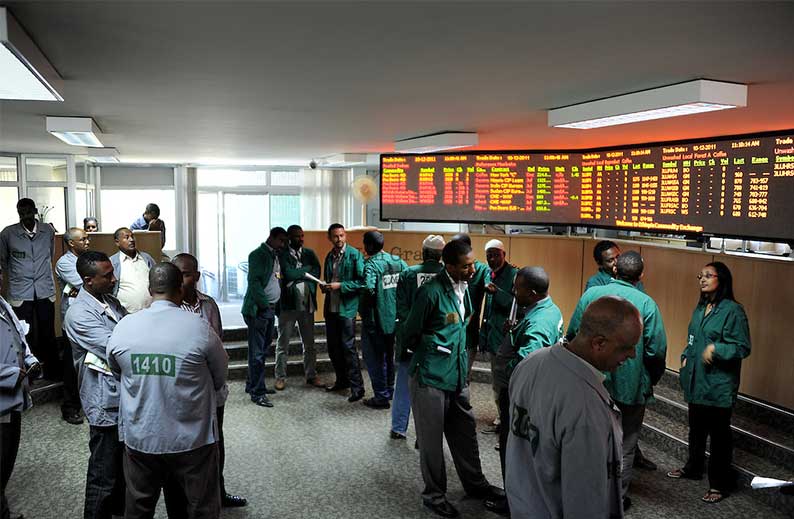
Fortune News | Jun 21,2025
Mar 19 , 2022.
A crisis that should be familiar to Ethiopians is taking place in the eastern part of Europe. A “military operation” that was supposed to take a few days has been grinding and escalating into a disaster for nearly a month. People who share a culture and history are pitted against one another, with the humanitarian costs rising daily. Close to two million people were forced to flee their homes until last week; the death toll increases by the day.
Ukrainian cities are decimated, and the Russian economy is haemorrhaging. It is not surprising. When political ailments are prescribed military remedies, it is mutual destruction that follows. No one is winning this tragic war of aggression by Russian military forces.
Like many countries worldwide, Ethiopia is watching the unfolding human folly and misery from afar. Very few appear to recognise the ramification of a brutal war in a land seemingly far from their homes. However, many countries depend on both countries for the imports of wheat. Russia and Ukraine make up for a third of wheat exports. Russia supplies a tenth of the world’s oil. Worsening domestic inflation is almost assured at this point. But these are only short-term.
The Ukraine war's lasting impact signals a new world order is inaugurated, transforming the American-led international liberal order of the past three decades. Arguably, it started to disintegrate with the Asian financial crisis of the late 1990s, followed by the global financial meltdown a decade later. In the intervening years, the global pandemic, the proliferation of civil wars and coups, and invasions (including by the United States) were writings on the wall.
The Russian aggression of its neighbour looks likely to break the camel’s back, introducing a world order characterised by division, uncertainty and dysfunction.
Ethiopia needs to pay attention to this tectonic shift's broader meaning and impact on the global order. Its foreign policy could determine where it lands in this equation for decades to come. This will not be easy, primarily because the world is too close to “history” to accurately predict where the war Russia wages against Ukraine is taking the ageing world order.
On one extreme, it could be Russia fully or partially occupying Ukraine and installing a satellite regime sensitive to Moscow. President Vladimir Putin’s regime stays in power and gets beholden with increasingly repressive and protectionist laws to keep a population impoverished by sanctions in check. And China, realising that mending relations with the West is a losing battle, throws its weight behind an ideological ally. Whether Beijing comes to the aid of Moscow is yet to be seen, despite Washington's threat delivered both publicly and in private.
The other possibility could be that the Putin regime follows in the path of the last Romanov emperor, Nicholas II. In the aftermath of the First World War, where military disasters and economic devastation led to the February Revolution, the Bolsheviks had brought royalty in Russia to an end. If Putin meets the same fate, Beijing may not see an advantage in risking its economic relationship with the West; it may turn its back on Russia.
While Russia's war in Ukraine could be a trigger for transforming the world order, it would only be one among many that could have led the “West” and the “East” to a schism. Russia-Ukraine war or not, it has been a while since the United States and China have been heading for a showdown of some sort. They have become strategic competitors over the past few years, from strategic cooperation posturing their leaders had tried in the previous decade. For now, both continue to value the comparative advantages offered by their economies - China’s affordable and expansive manufacturing base to the United State’s sophisticated services sector. China remains a factory-house of the world, and the United States its largest market.
But this is the only tether holding them together. The national and geopolitical imperative is becoming an onerous burden for the economic cord to bear.
All of these would have profound consequences for the world. Ethiopia is not an island. The older generation's political leaders and foreign policy wizards know this as their country swung from one side of the geopolitical aisle to the other without clear strategic foresight. It had brutal consequences. It should not be repeated. The foreign policy leadership should prepare for a new world order to ensure that it will not be a pawn in great power rivalry but an assertive and self-conscious country putting its own interests first.
The Russian misadventure in Ukraine has yet to conclude. But there are already shifts that could point to a post-American-led international order. A unipolar global order is devolving into a multipolar world where the rise of middle powers rushing to fill a vacuum left by the world's " policeman " is evident.
Multilateral institutions such as the United Nations, perhaps the most symbolic manifestations of the post-World War 2 order, are proven to be too old or irrelevant.
The United Nations, currently under the leadership of a rather feeble man, is showing it is an extrinsic player when its services are most needed. The United Nations' abdication of duty did not start now. It failed in much of the Middle East and Africa, including Ethiopia, as the country descended into civil war. However, its impotence has never been as glaring as now when Ukrainian cities are levelled to the ground daily on live TV. If the United Nations did not have such a vast bureaucracy, which reinforces the organisation's continued survival for its own sake, it would have been repurposed into an aid agency that could be more relevant and useful to people.
The world could be entering an age where multilateral institutions are no more credible or useful than offering thoughts and prayers for the challenges they were created to address. Take the International Monetary Fund (IMF), the World Trade Organisation (WTO) and even the World Bank. Their value to the well-being of the global economy has been chipped by the Asian and the global financial crises and the inflationary pressure of today as millions starve in Africa and the Middle East because of the skyrocketing food prices.
Then there are the consequences of sanctions on Russia, particularly the weaponising of financial services and institutions by the United States and the European Union. It is compounded by increased economic protectionism, which had propounded free trade. The series of crises over the decade causing commodities shortage and supply chain disruptions are making it apparent that trade-dependent countries suffer the most in global economic cycles. Many presume that this spells de-Dollarisation and the road to the greater adoption of the Chinese renminbi. It could partly be the case but do not count on it. Even if China opens its financial sector for its currency to be widely used, there is no reason that it too would not weaponise the renminbi down the road, for instance, against countries that maintain close diplomatic ties with Taiwan.
The most likely scenario is a rupture in global finance between political allies and capital moving less fluidly between countries that do not trust one another, including the two largest economies in the world. Gold, harder to convert into liquid assets in large amounts but acceptable everywhere, may make a dramatic comeback as a reserve currency, especially for central banks.
Perhaps most depressing in the evolving world order would be that challenges that require global effort would be placed on the back burner as superpowers concentrate resources and attention towards containing the influence of one another. These include climate change, global poverty eradication, and epidemic prevention and control, affecting developing countries such as Ethiopia the most.
Taking all of this together, it seems it is one of those times Lenin warned about - the “weeks where decades happen.” The “decades where nothing happens” appear to have gone. Ethiopia can either wait around to be run over by “history,” or it could prepare to make the best out of it. It needs competent leadership with moral clarity and strategic foresight. Ethiopia is saddled with a foreign policy strategy written two decades ago as the world transforms. The draft for a new one has been languishing at the Council of Ministers. This needs to be addressed.
A sound foreign policy starts at the domestic front. Without having a population at peace with itself, it is incomprehensible to deal with consequential matters in the neighbourhood and beyond. It would be like a severely sick person competing in the Olympics. Internal ailments should be addressed, where all-inclusive talks for political settlements take place, justice is assured, and each group is persuaded in the marketplace of ideas that what advances the "national interest" is indeed the dignity and wellbeing of citizens and the protection of groups.
PUBLISHED ON
Mar 19,2022 [ VOL
22 , NO
1142]

Fortune News | Jun 21,2025

Editorial | Aug 17,2019

Radar | Nov 11,2023

My Opinion | May 24,2025

Agenda | Nov 23,2019

Sunday with Eden | Aug 29,2020

Fortune News | Dec 04,2022

Radar | Aug 10,2019

Fortune News | Jan 27,2024

Viewpoints | Nov 18,2023

My Opinion | 131970 Views | Aug 14,2021

My Opinion | 128359 Views | Aug 21,2021

My Opinion | 126297 Views | Sep 10,2021

My Opinion | 123912 Views | Aug 07,2021

Dec 22 , 2024 . By TIZITA SHEWAFERAW
Charged with transforming colossal state-owned enterprises into modern and competitiv...

Aug 18 , 2024 . By AKSAH ITALO
Although predictable Yonas Zerihun's job in the ride-hailing service is not immune to...

Jul 28 , 2024 . By TIZITA SHEWAFERAW
Unhabitual, perhaps too many, Samuel Gebreyohannes, 38, used to occasionally enjoy a couple of beers at breakfast. However, he recently swit...

Jul 13 , 2024 . By AKSAH ITALO
Investors who rely on tractors, trucks, and field vehicles for commuting, transporting commodities, and f...

Jul 6 , 2025 . By BEZAWIT HULUAGER
The federal legislature gave Prime Minister Abiy Ahmed (PhD) what he wanted: a 1.9 tr...

Jul 6 , 2025 . By YITBAREK GETACHEW
In a city rising skyward at breakneck speed, a reckoning has arrived. Authorities in...

Jul 6 , 2025 . By NAHOM AYELE
A landmark directive from the Ministry of Finance signals a paradigm shift in the cou...

Jul 6 , 2025 . By NAHOM AYELE
Awash Bank has announced plans to establish a dedicated investment banking subsidiary...